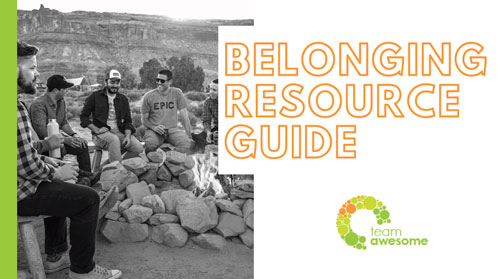Let’s face it, there is still a lot of confusion out there over what coaching is. It’s understandable, seeing as there are so many situations where society loosely sprinkles around the word “coaching.”
There is sports coaching, where coaches give specific direction to the players. There is mentoring, where we use the model of “here’s what I’ve learned” or “based on my experience here’s what you should do.” There is consulting which is based on you paying someone to tell you what to do (e.g., fix these eight things on your LinkedIn page). And then, there is coaching.
Coaching is actually built on a professional model for self-development with many skills and techniques aimed at developing people to their highest potential. It is question-based rather than providing direct answers and the agenda and goal setting is owned by the client, not the coach. It is probably different (perhaps even opposite) from everything you have experienced before in your career, and it has the possibility to unlock levels you didn’t even realize you needed.
What coaching can do for you
As someone who grew up steeped in leadership development culture and a leader of organizational development functions, I had a lot of experience in this space. I created and led training and leadership development programs, I had participated in many myself, and I have taken a lot of personal assessments. And after all of that, I learned more about myself in one year being exposed to coaching than I had in the previous 34 years of my life. It can be truly that powerful.
Not only did I learn how to coach via an ICF-accredited coaching training program, but I also experienced weekly coaching sessions, and in some cases twice per week (this is more than normal) and found it to be an immensely helpful vehicle to move much more quickly though my own personal B.S. and towards the completion of my goals. Coaching helped me play the mental game as an entrepreneur, redefine what success meant to me, examine my core beliefs and thoughts, and raise my own consciousness and that of others. No course on strategic thinking or driving results ever came close to that much bang.
In a world where many of us are searching for more, for a higher meaning, and craving true authenticity in ourselves and others, coaching is the missing link. The professional coaching model helps you find the right solutions, FOR YOU. It helps you cut through your own limiting beliefs and move more quickly towards your goals.
What it can do for your organization
While many people seek coaching outright, it is also a powerful tool to use in organizations. Or course, this is not new information; executive coaching has been common for decades. But organizations are just now starting to understand how the investment in coaching can be beneficial at every level, not just in the C-suite.
Organizations employ coaching in a few ways: Contracting an external coach, hiring an internal coach, and teaching managers in the company to employ coaching skills directly with their teams. Larger organizations may even build a large portion of their employees as certified coaches.
As a tool to develop talent on your team, coaching is more useful than ever. Mentoring has long been around as a key professional development tool (and it is still important) but world experiences have changed so drastically over the last 30 years (or even 10!) that traditional advice of what has worked in the past doesn’t always ring true for the next generation of leaders. Coaching is especially coveted for Millennial leaders and anyone who prefers guidance to find their own right path in place of being told what to do. I learned years ago that I don’t take direction well from others, which makes sense why I am so terribly coachable.
To implement coaching in your organization, you can consider one of the three ways mentioned above to bring coaching in. Or you can get creative for how you offer coaching as a solution to your teams. Consider a coaching scholarship option instead of tuition reimbursement or offer coaching as a benefit to membership in your Employee Resource Groups (ERG). If only executives receive coaching, and you have limited women or people of color in those ranks, then they are missing the benefits of coaching.
Keys to hiring a coach
Certification
People often ask me about the importance of whether or not a coach is certified. Coaching, although gaining popularity, is still widely unregulated and therefore you find people classifying their work as coaching when it is more accurately defined as consulting. Here is my take on why certification is important.
I felt it was critical for me to become a certified coach for two main reasons. First, there are many skills and tools that go into a professional coaching model that are used seamlessly as part of the art of coaching. It would have taken me years to cobble together everything I know through “self-study” and I would still be less effective in using them. Second, the process of going deep within myself as part of my certification program is a critical element to what makes me a quality coach today. I believe coaches can only take you as far as they have gone in their own inner work, and I can confidently say many certified coaches I know who have done the work can go deep with their clients.
Fit
Finding the right fit with a coach that you feel comfortable and open with is important. You will always have an opportunity to talk with them first, so be sure to take advantage of that. You will want to make sure their personality, style and coaching process are a fit for you. I share up front what clients can expect from my process, and they can get a sense for my coaching approach in one phone call. This does not ultimately mean that you should be looking for someone “just like you” but it will be critical that you feel comfortable to share your thoughts, feelings and experiences. My clients are not shy about the fact that they cyber-researched me ahead of time and reviewed my website to get an understanding of my worldview and approach to life. How you do anything is how you do everything, after all.
Readiness
Lastly, one of the most important factors in finding success with a coach is your readiness to examine yourself, do the work, and take action. The coach is the catalyst, but the client is the owner of taking action. That means making time to prioritize the work, and yourself (something we aren’t often very good at doing). Rate yourself on a scale of one to ten (ten being the highest) on how ready you are to take action for yourself. So, how ready are you for coaching?
I truly believe that everyone can benefit from coaching as a way to arrive at conclusions and next steps that make sense to them as an individual. In a world where we want to feel deeply that we are on our path and part of something bigger, the critical shift is that we come to understand our path for ourselves rather than wait for someone to reveal it to us. Coaching can do that for us, and the result is us truly knowing our purpose, our connection to something bigger, and what we value. Coaching can literally be the secret weapon to how we lead to create the workplaces and lives we are searching for. More and more people are giving up being told what to do to answer those questions for themselves with the help of a coach. Are you ready to change how you see your life and work?
About the author:
Katie Rasoul is the Chief Awesome Officer for Team Awesome, a leadership coaching and culture consulting firm. Find out more by visiting www.teamawesomecoaching.com or join the Team Awesome Community for awesomeness coming straight to your inbox. Follow Team Awesome on Instagram, Facebook and Twitter.



Trackbacks/Pingbacks